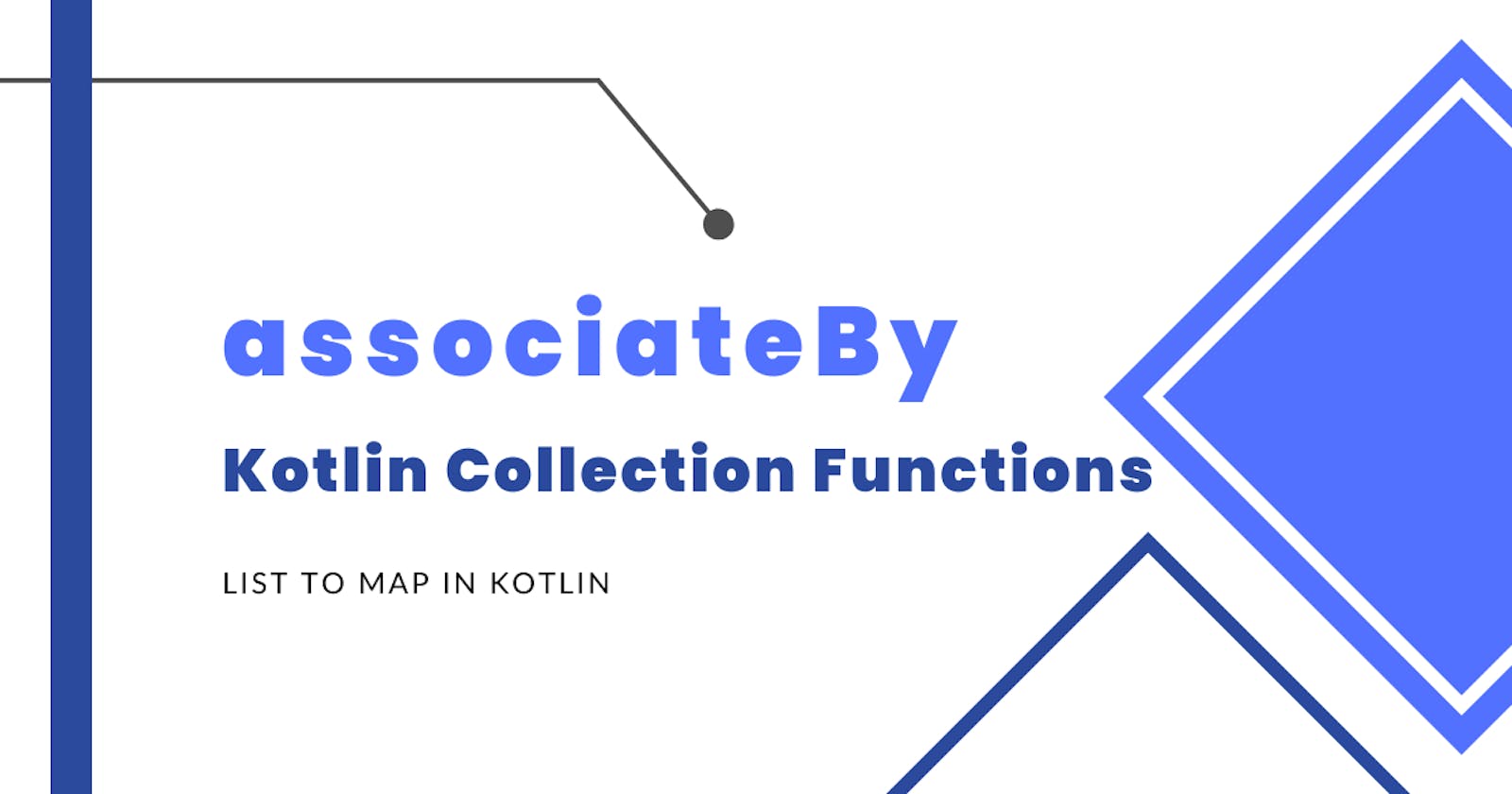Hi, I am Amit Shekhar, Co-Founder @ Outcome School • IIT 2010-14 • I have taught and mentored many developers, and their efforts landed them high-paying tech jobs, helped many tech companies in solving their unique problems, and created many open-source libraries being used by top companies. I am passionate about sharing knowledge through open-source, blogs, and videos.
In this blog, we will learn about the Kotlin Collection Functions - associateBy that converts a list into a map.
This article was originally published at Outcome School.
There are many useful collection functions in Kotlin. It is good to know about those and use those based on the requirement. One of those collection functions is associateBy.
associateBy let us convert a list into a map.
Let's learn by example.
Consider a data class Contact like below:
data class Contact(val name: String, val phoneNumber: String)
And, a list of Contact:
val contacts = listOf(
Contact("Amit", "+9199XXX11111"),
Contact("Messi", "+9199XXX22222"),
Contact("Ronaldo", "+9199XXX33333"))
Now, let's use the associateBy function on this list of Contact to get a Map with the
keyasnamevalueasphoneNumber
val nameToNumberMap = contacts.associateBy( {it.name}, {it.phoneNumber})
println(nameToNumberMap)
This will print the following:
{Amit=+9199XXX11111,
Messi=+9199XXX22222,
Ronaldo=+9199XXX33333}
If we go through the source code, we will find the following definition:
inline fun <T, K, V> Iterable<T>.associateBy(keySelector: (T) -> K, valueTransform: (T) -> V): Map<K, V>
Note:
- Returns a
Mapcontaining the values provided byvalueTransformand indexed bykeySelectorfunctions applied to elements of the given collection. - If any two elements is having the same key returned by
keySelectorthen, the last one will get added to the map. - Maintain the original order of items.
Master Kotlin Coroutines from here: Mastering Kotlin Coroutines
That's it for now.
Thanks
Amit Shekhar
Co-Founder @ Outcome School
You can connect with me on:
